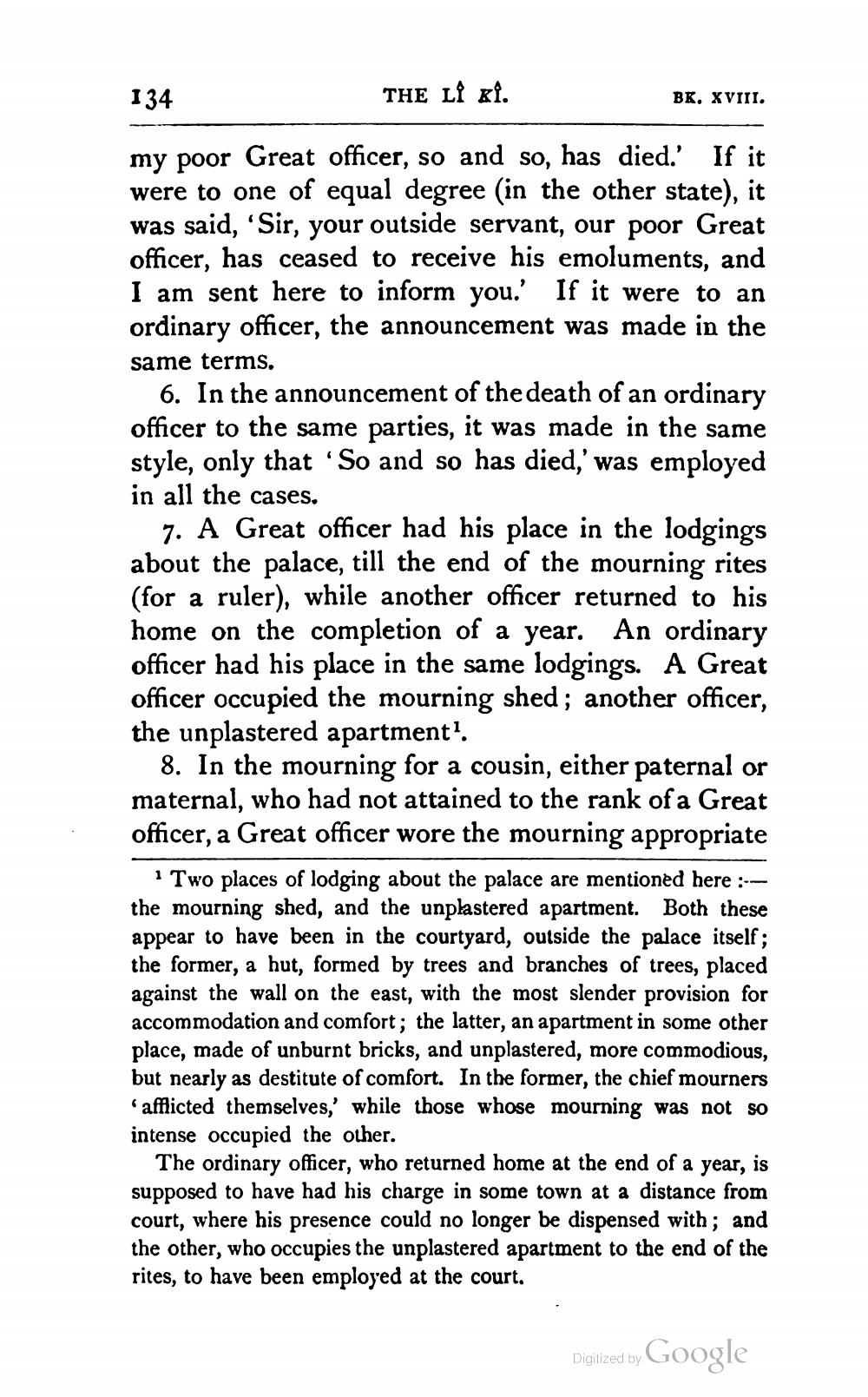________________
134
THE LÍ KT.
BK. XVIII.
my poor Great officer, so and so, has died.' If it were to one of equal degree (in the other state), it was said, 'Sir, your outside servant, our poor Great officer, has ceased to receive his emoluments, and I am sent here to inform you. If it were to an ordinary officer, the announcement was made in the same terms.
6. In the announcement of the death of an ordinary officer to the same parties, it was made in the same style, only that 'So and so has died,' was employed in all the cases.
7. A Great officer had his place in the lodgings about the palace, till the end of the mourning rites (for a ruler), while another officer returned to his home on the completion of a year. An ordinary officer had his place in the same lodgings. A Great officer occupied the mourning shed; another officer, the unplastered apartment'.
8. In the mourning for a cousin, either paternal or maternal, who had not attained to the rank of a Great officer, a Great officer wore the mourning appropriate
Two places of lodging about the palace are mentioned here :-- the mourning shed, and the unplastered apartment. Both these appear to have been in the courtyard, outside the palace itself: the former, a hut, formed by trees and branches of trees, placed against the wall on the east, with the most slender provision for accommodation and comfort; the latter, an apartment in some other place, made of unburnt bricks, and unplastered, more commodious, but nearly as destitute of comfort. In the former, the chief mourners 'afflicted themselves,' while those whose mourning was not so intense occupied the other.
The ordinary officer, who returned home at the end of a year, is supposed to have had his charge in some town at a distance from court, where his presence could no longer be dispensed with; and the other, who occupies the unplastered apartment to the end of the rites, to have been employed at the court.
Digitized by Google




